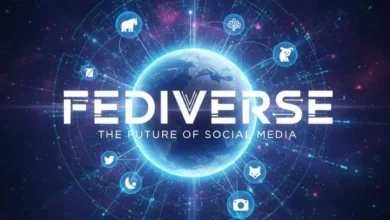Windows 12: The Agentic AI OS – Why the Delay is a Calculated Leap

The tech world is abuzz with speculation about Windows 12. Whispers of an imminent release have been replaced by an expectant silence, leading many to wonder: what’s causing the delay? While countless theories circulate, one increasingly compelling narrative suggests that Microsoft isn’t merely tweaking an operating system; they’re fundamentally reimagining it. The delay, far from being a setback, could be a calculated strategic move to position Windows 12 as the world’s first truly Agentic AI Operating System, built from the ground up to be future-ready.
The Agentic AI Revolution: Beyond Co-Pilots to Autonomous Partners
We’ve already seen the impressive capabilities of AI integrations in current operating systems, with features like Microsoft’s Copilot offering intelligent assistance. But an “Agentic AI OS” takes this concept to an entirely new level. Imagine an operating system that doesn’t just respond to your commands, but anticipates your needs, learns your preferences, and autonomously executes complex tasks on your behalf. This isn’t just about productivity; it’s about transforming the very nature of human-computer interaction.
An Agentic AI OS would be:
- Proactive: Instead of waiting for instructions, it would suggest relevant actions, prepare necessary data, and even initiate workflows based on your historical behavior and current context.
- Adaptive: It would continuously learn from your interactions, refining its understanding of your work habits, communication styles, and even your creative processes.
- Autonomous: For routine or clearly defined tasks, it could operate independently, freeing up your time and mental bandwidth for more strategic endeavors. Think of it as a highly skilled personal assistant embedded at the core of your digital life.
- Context-Aware: It would understand not just what you’re doing, but why you’re doing it, leveraging this deeper understanding to offer more relevant and impactful assistance.
The Pillars of an Agentic AI OS: What Would it Look Like?
If Windows 12 is indeed being forged into an Agentic AI powerhouse, we can expect to see fundamental shifts across various aspects of the OS:
- Deep Integration with Hardware: To truly be agentic, the AI won’t just be software; it will be inextricably linked to specialized hardware. Think dedicated AI co-processors, neural processing units (NPUs) that are always-on and deeply integrated with the CPU and GPU. This ensures low-latency AI inference and efficient, background operation.
- A Redesigned Kernel: The very heart of Windows might be re-engineered to prioritize AI workloads. This could mean a more modular kernel where AI services are first-class citizens, ensuring optimal resource allocation and system stability even under heavy AI processing.
- Adaptive User Interface (AUI): Your desktop might no longer be a static grid of icons. Instead, it could dynamically reconfigure itself based on your current task, surfacing relevant information, applications, and controls exactly when you need them. The UI would become a living, breathing interface that predicts your next move.
- Omnipresent Natural Language Interface: While we have voice assistants now, an Agentic AI OS would elevate natural language to the primary mode of interaction. You could describe complex intentions (“Organize my travel plans for next month, booking flights and accommodation based on my loyalty programs and budget, then add it to my calendar and inform my team”) and the OS would execute.
- Hyper-Personalization at Scale: Beyond simple theme changes, the OS would adapt its entire operational philosophy to you. How you prefer information presented, your communication quirks, your focus times, your preferred creative tools – all would be understood and catered to.
- Enhanced Security and Privacy: With great power comes great responsibility. An Agentic AI OS would require state-of-the-art security protocols to protect highly personal data and ensure the AI acts only within defined parameters, with transparent controls for the user.
- Developer Ecosystem for Agentic AI: Microsoft would need to provide robust SDKs and APIs for developers to build applications that can leverage the OS’s agentic capabilities, creating a new generation of smart, proactive software.
Here’s an illustrative example of what an Agentic AI OS experience might look like:

The Strategic Imperative: Why Microsoft Can’t Afford to Wait
The delay in Windows 12 isn’t just about adding a few AI features; it’s about a foundational shift driven by competitive pressures and the relentless march of technological progress.
- The AI Arms Race: Every major tech company is pouring resources into AI. Microsoft, with its significant investments in OpenAI, is uniquely positioned to lead. Releasing a “half-baked” AI OS would be a missed opportunity to cement its leadership.
- Edge Computing and IoT: The proliferation of smart devices and edge computing demands an OS that can intelligently manage and interact with a vast network of interconnected systems. An Agentic AI OS is perfectly suited for this distributed intelligence paradigm.
- The Rise of Specialized Hardware: Intel, AMD, and Qualcomm are all developing chip architectures with increasingly powerful NPUs. Microsoft needs an OS that can fully exploit this hardware, making these chips truly indispensable.
- User Expectations: As AI becomes more commonplace in our daily lives (smartphones, smart homes), users will expect their primary computing device – their PC – to be just as intelligent, if not more so.
- Future-Proofing the Windows Ecosystem: A truly agentic OS would create a sticky ecosystem, making it harder for users to switch platforms. It would also open up entirely new avenues for application development and services.
The Challenges of Building an Agentic AI OS
This ambitious vision is not without its hurdles:
- Computational Demands: True agentic AI requires immense computational power, both locally and in the cloud. Optimizing this for various hardware configurations is a monumental task.
- Data Privacy and Security: The more an OS learns about a user, the more critical robust privacy controls and security measures become. Trust will be paramount.
- Ethical AI Development: Ensuring the AI is unbiased, fair, and operates ethically is a complex and ongoing challenge.
- User Adoption and Trust: Introducing such a radically different computing paradigm will require careful communication and a seamless transition to gain widespread user trust and adoption.
- Backward Compatibility: Balancing revolutionary new features with the need to support a vast legacy of Windows applications and hardware is always a delicate act.
Conclusion: A Patient Wait for a Transformative Future
The current silence around Windows 12, rather than signaling problems, might be a testament to Microsoft’s commitment to delivering something truly transformative. If the rumors hold true, and the delay is indeed fueled by an ambition to create the first Agentic AI Operating System, then the wait will be more than justified. We aren’t just waiting for a new version of Windows; we might be on the cusp of experiencing a fundamental shift in how we interact with our computers, empowering us with an intelligent, proactive partner that reshapes productivity, creativity, and our digital lives. The future of computing might not just be smart; it might be agentic, and Windows 12 could be leading the charge.
For more Odinozz Tech articles, click here.
Follow Odinozz on social media. Click here.



